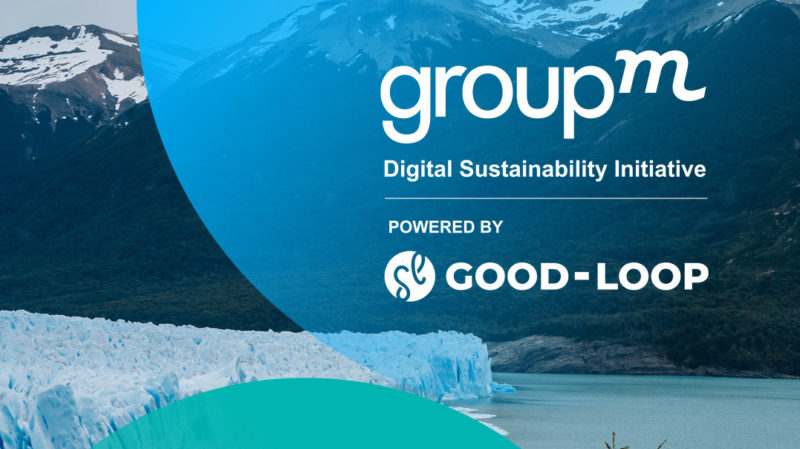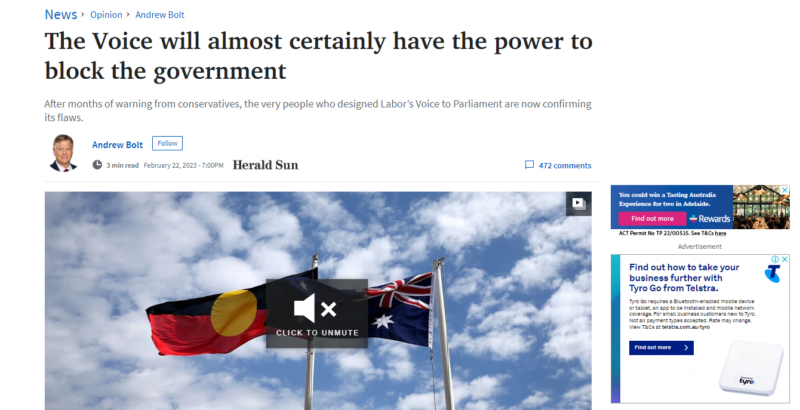Morality and media – does the combination exist?
Now that the dust has settled, Mumbrella's Calum Jaspan questions if advertisers' walk is matching the talk, and the ongoing risk for brands playing in divisive media environments.
The opinion of one of the industry’s more well-known names turned a few heads on the site last week.
We covered it on the podcast, but I think the topic deserves another look now that it has had a bit of time to simmer.
“The media bullying of Higgins is getting to a point advertisers are going to need to reassess their role in funding and enabling this sort of bullying. Horrible stuff,” Dentsu’s chief investment officer Ben Shepherd wrote on LinkedIn.
It’s a comment most would probably agree with in isolation. Certain sections of the media’s coverage of Brittany Higgins in recent weeks have been deplorable.
The only difference between Shepherd and your average punter sharing that opinion is that he is charged with a $500 million+ media investment portfolio. An investment portfolio that houses mega-spenders like Woolworths, the second biggest non-governmental spender in 2021.
Who’s job is it anyway?
Amid all of this, Shepherd raised an important question. It’s not a new question either. Do advertisers need to reassess their role in the chain of funding media? Is it a brand’s job? Or is it anyone’s job at all?
Agencies often preach about mental health, well-being and doing good, so why don’t they put their money where their mouth is and start going about their business on these morals?
We can take GroupM as an example, who are seeking to do good by leading the way on carbon-based buying.

GroupM is pushing decarbonisaion of the media supply chain
In November, Shepherd’s counterpart at GroupM, the outgoing-Seb Rennie put publishers on notice, stating that within the next two years, the group’s investment strategy will increasingly be informed by carbon footprint.
While Shepherd and Dentsu said in a response to questions from Mumbrella that the original post was aimed at sparking conversation, maybe if there was a commitment to action from them, the narrative that followed may have been different.
“We’re not the judge and jury,” one agency boss said to me on the topic since. “We’re employed to advertise and get an audience.”
“Our opinion is only relevant if the client agrees,” they continued, suggesting there would be chaos if media buying was based on political stances.
This situation wasn’t so much political, though. While Higgins’ case has been turned into a political lightning rod by sections of the media, it is individuals like Andrew Bolt themselves that provide cause for action.
The Herald Sun, where Bolt’s column appears, is the third most read masthead across print and digital in Australia, according to Roy Morgan figures this morning, coming in behind Nine’s The Sydney Morning Herald and The Age, and just ahead of The Australian.
But Bolt still maintains views that are far removed from where most Australian brands say they want to play.
Take his and his colleague’s attack on SBS last week as an example, where they criticised the broadcaster for including First Nations names in its weather report, going so far as to refer to it as “cultural cleansing”.
It is important to add that displaying indigenous names on weather reports is something the ABC and Network Ten already do.
He even begins the segment by mocking the fact the weather report was read by the broadcaster’s elder in residence, “of all very modern things”, he added.
This opinion, and kind of language would appear fairly far removed from News Corp and Foxtel’s Reconciliation Action Plans.
In another opinion piece from Bolt this week on the Voice to Parliament referendum, he referred to the plan as “racist”. I was served an ad for Telstra next to the piece.

Screenshot taken on 24 February on the Herald Sun website
Some may remember in 2016, Telstra backflipped on its public support for the ‘Yes’ vote for marriage equality after pressure from the Catholic church, only to backflip again after negative press, returning to a position of active support.
Telstra hasn’t taken a public position on the Voice referendum yet, which its chairman, John Mullen, said this month still remains “far from clear”.
Fair enough, many brands are yet to take a viewpoint on it.
I asked Telstra their thoughts on advertising against the backdrop of this column, but I didn’t get a response.
As Shepherd told Mumbrella last week: “there should be a mechanism to turn off ads online against complicated, potentially controversial content to avoid a brand’s reputation being pulled into question.”
Are these the situations where a lever like this is necessitated? Or should brands be more considered about being in divisive environments like Bolt’s regular column more generally?
“A lot of people have concerns about News [Corp], particularly over the lockdown period,” said another agency boss last week. “But I’m not sure agencies have a mandate from clients to direct money away from the media platforms they don’t like politically.”
Numerous studies have shown in the past the impact negative media or content adjacency has on brands, particularly in younger audiences.
While things are more tricky in the digital age, there are organisations like the Global Disinformation Index that are looking to help brands avoid disinformation or harmful content on automated campaigns.
Do brands want to play in this environment?
Speaking to a former newspaper editor, they said “the media thinks it can be independent and say what it wants. Well, so can advertisers. The media is dependent on them.
“I could tell you many awful stories about advertisers trying to influence editorial… but that’s their right.”
While they said Dentsu may not be doing anything right now, “it’s a signal that will open up the discussion and brands may then start to instruct agencies to work in this way…”.
But will brands start to instruct agencies?
The agency boss above continued: “We have one client where we’ve spoken to them specifically about this topic and they genuinely want us to help them to support media owners who they consider are making a positive impact in the world, but it’s rare and most clients haven’t thought twice about it.”
“It’s a question of how far can you go?” said another industry pundit. “Especially when your job is to advise clients on their spend.”
We’ve sat on this for the week and pondered the feedback.
It seems there are two ways this can go from here. Put up or shut up.
Is any company willing to take a point of view on an issue like this? Or is this precarious economic spot we’re in shaping how we approach issues like this? As in, while we are in economic uncertainty, it’s not wise to swim upstream.
Is this going to be an industry that lets its moral compass be led by economics, or is it going to stand up for the beliefs people share in conversations every day? That’s a genuine question, not a judgment.

Calum Jaspan is news editor at Mumbrella.



 Linkedin
Linkedin
“We’re not the judge and jury,” one agency boss said to me on the topic since. “We’re employed to advertise and get an audience.”
“Our opinion is only relevant if the client agrees,” they continued, suggesting there would be chaos if media buying was based on political stances.”
Amazing. Factually incorrect, derelict of responsibility and completely uninspired. From an agency boss? How surprising.
It’s the media agency’s job to provide eyeballs for an ad, correct, but agencies also need to provide advice to clients on where they should run not solely informed by the potential total audience. Clients want advice on 1) how the environment they’re advertising in best suits and enhances the brand/message/specific ad, and 2) brand safety. This is a fundamental core of media strategy.
The clients want their agency’s advice and guidance, and that involves taking a position not based on 000’s. In my personal experience as the relatively junior investor who ultimately had a big say in where multiple $50M+ clients put their money, I felt empowered and required to provide an opinion on what talent was a good fit and who to avoid, and what channels and platforms would leave them open to the dreaded complaints from the public. I kept on my desk an inch high stack of complaint letters from a Christian group when my client’s mainstream brand had a bonus spot run in the Californication launch to scare/train newbies. Remember conservatives complain as much as progressives.
Also, in the hundreds of times we ran the maths, you could get a comparative audience leaving out shock jocks and radical platforms.
If I was a marketer and found out my agency said “our opinion only matters if you agree with us” I’d be pretty disappointed. What expertise am paying for? Having a political opinion on where ads should run won’t lead to “chaos” any more than arbitrary share deals, matey relationships and Christmas hams do.
My alternate opinion to agency teams; don’t wait for a position to come from your business. Put a measured and smart opinion in front of your clients, and they’ll love you for it.
User ID not verified.
Moral/political objection to news is NOT a brand safety. End of story.
User ID not verified.
Bravo Calum. And go to hell anyone who disagrees with you. Burn them at the stake!
User ID not verified.
Have your say